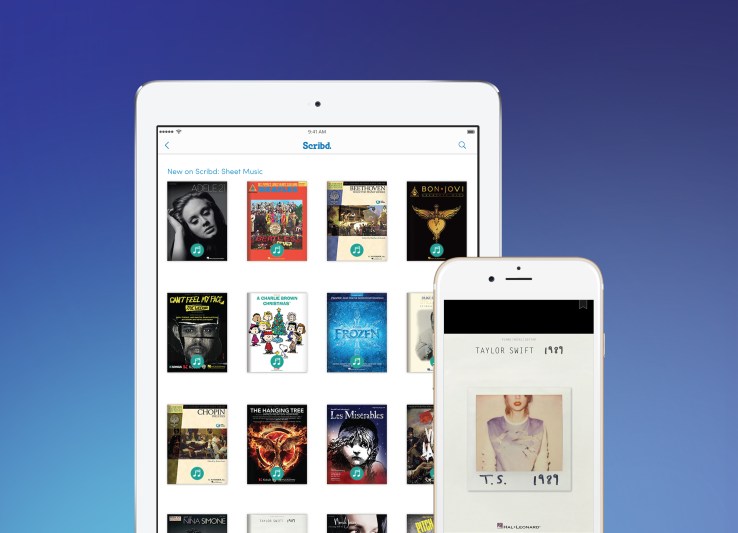
Scribd continues to expand its selection — it’s adding sheet music for the first time, and also announcing deals to bring in Sesame Street children’s books and expand its selection of textbooks.
Scribd already offers unlimited access to a library of e-books and other content for $8.99 a month. Even though the company has been expanding into areas like audiobooks and comics, sheet music might not seem like an obvious addition. However, co-founder and CEO Trip Adler said sheet music is already “a really highly searched-for term on Scribd.”
“We want to be broader than just books,” Adler added. “We started with documents, we did comics, we see ourselves as being the library of the future.”
The company’s first sheet music deal is with publisher Hal Leonard, adding 2,600 digital song books to the Scribd library. It covers a range of instruments (Adler’s a saxophone player himself), difficulty levels and genres.
The company also said it’s adding thousands of textbooks from Elsevier, and will be introducing Sesame Street titles in the first quarter of next year.
It’s been a few months since Oyster (which was Scribd’s highest profile startup competitor) shut down, with many of its team members joining Google Play Books, raising questions about the viability of “Netflix for books”-style model.
As for content licensing (which can be a big challenge for online media services), Adler acknowledged that they represent Scribd’s biggest cost, but he doesn’t see that as a bad thing.Adler said that at Scribd, “Everything is going according to plan.” He argued that the company has a unique advantage, since it started out as a document-sharing service reaching a large audience (currently 80 million unique monthly visitors) and convinces a “fraction” of those users to sign up for the paid plan every month.
“We’ve been able to negotiate a lot of really great deals,” he said. “We’ve been making it work pretty well… Our goal is to make money for publishers and authors, and think we’ve been doing that really successfully.”

Comments
Post a Comment